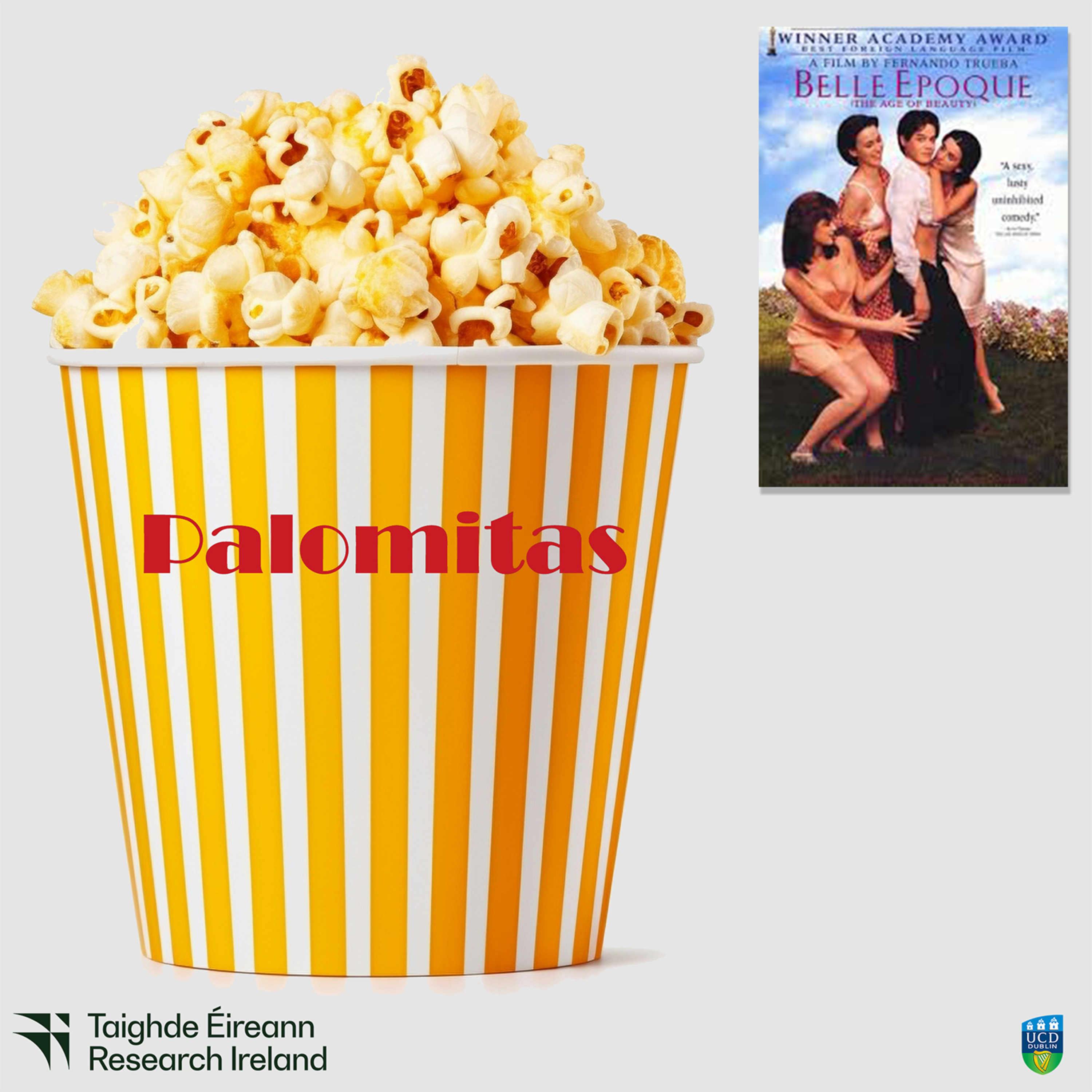Palomitas

Palomitas
Podcast Description
Palomitas ('Popcorn' in Spanish) is the podcast where Spanish cinema comes alive! The podcast has emanated from research conducted with the financial support of Taighde Éireann – Research Ireland. Feedback and/or questions? Please send to [email protected] - we'd love to hear from you!
Podcast Insights
Content Themes
The podcast explores various themes within Spanish cinema, focusing on topics such as cultural representation and the impact of film on society. Examples from episodes include an analysis of 'La llamada' (2017) examining musical adaptations and gender dynamics, and 'Ocho apellidos vascos' (2014) which highlights comedy's role in addressing regional stereotypes.

Palomitas (‘Popcorn’ in Spanish) is the podcast where Spanish cinema comes alive! The podcast has emanated from research conducted with the financial support of Taighde Éireann – Research Ireland. Feedback and/or questions? Please send to [email protected] – we’d love to hear from you!
This week on Palomitas, we dive into the sunlit, sensual daydream of Belle Époque (Fernando Trueba, 1992) – with special guest Dr. Peter Watson, Lecturer in Spanish and Latin American Studies at the University of Leeds.
An Oscar-winning comedy of manners and desire, the film follows Fernando, a young army deserter in 1931, who stumbles into a rural paradise presided over by four spirited sisters. What unfolds is a wine-soaked pastoral fantasy – a bittersweet elegy for a lost “age of beauty” just before Spain’s descent into civil war.
We unpack:
Whether the film is a utopian celebration of freedom or a dangerously embellished piece of historical amnesia.
How its carnivalesque masquerade upends traditional gender roles and Spanish machismo.
Why this nostalgic sex comedy became a global phenomenon and Spain’s cinematic calling card in the 1990s.
The film’s lasting legacy: is it a poignant escape, a political fairy tale, or a little of both?
Can you rewrite history as a beautiful dream? Tune in to find out.
Scholarship cited in the episode:
Colmeiro, José F. “Paradise Found? Ana/chronic Nostalgia in Belle Époque.” Film Historia 1, no. 2 (1997): 131-40.
Davies, Ann. Penélope Cruz. Bloomsbury, 2014.
Gasta, Chad M. “(De)constructing and (Re)negotiating Identities: (Re)dressing for Carnival in Fernando Trueba's Belle Époque (1992).” Hispania 87, no. 2 (2004): 177–84.
Jordan, Barry. “Refiguring the Past in the Post-Franco Fiction Film: Fernando Trueba’s Belle Époque.” Bulletin of Hispanic Studies, 76, no. 1 (1999): 139–56.

Disclaimer
This podcast’s information is provided for general reference and was obtained from publicly accessible sources. The Podcast Collaborative neither produces nor verifies the content, accuracy, or suitability of this podcast. Views and opinions belong solely to the podcast creators and guests.
For a complete disclaimer, please see our Full Disclaimer on the archive page. The Podcast Collaborative bears no responsibility for the podcast’s themes, language, or overall content. Listener discretion is advised. Read our Terms of Use and Privacy Policy for more details.